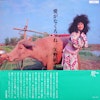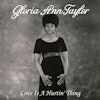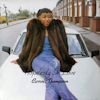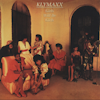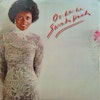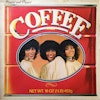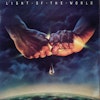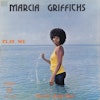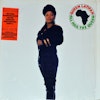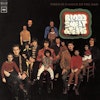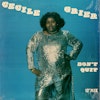The Californian sisters of the Pointer family accomplished aplenty, musically speaking, over their wildly varied and long-lasting career. Fueled by a desire to break out of a confined and holy lifestyle forced upon them by their preacher parents, the gals jumped at the chance to forge a musical career. Their tale of rebellion from religious restraints is a classic one and, seemingly, it drove them to say, as the title of their first hit does, “Yes We Can Can” to whatever was asked of them at the start. For their first two albums, producers and label executives wanted them to embrace a theatrical 1940s era vibe, and belt out twangy blues, jazz, and country-tinged tunes while wearing dowdy and nostalgic period costumes. The girls embraced the challenge and played it up. This foray into character-acting might have been a way for them to transition slowly into this new lifestyle and endeavor—or it might be that they needed some extra time to find their footing in the hedonistic world that surrounded the music business. The characters they created appeared innocent and non-threatening and, aside from “Yes We Can,” they had mild, not wild, success at the start of the journey.
An ongoing relationship with Bay Area deep-funk producer David Rubinson was significant to their trajectory. A fellow workaholic and studio master of some renown, a veteran of heavyweight sessions with groups like the Chambers Brothers, Tower of Power, and Herbie Hancock’s Headhunters, Rubinson was a force to be reckoned with who only accepted all-out performances from his artists every time. He helped the sultry siblings build up their skills by putting them to work, pulling them into his other sessions to do backup vocals for artists like Betty Davis, Cold Blood, Bobby Womack, the Headhunters, Grace Slick, and other West Coast heavyweights.
The deeply layered funk rock Rubinson orchestrated allowed the ladies to express themselves more assertively. They started to comfortably deliver vocals with punchy and raw energy—a ferocity that had been curtailed by lesser visionaries who'd acted as if the music the Sisters made would only ever be played on a scratchy Victrola. Rubinson encouraged the Pointers to show up and show out. When they started writing lyrics based on their own experiences, their irreverent attitude became, for this writer, musically thrilling.
By their fourth album, 1977’s propulsive and emotionally compelling Having a Party, the group fully broke out of the retro be-bop prison they were trapped in. They shed their drab stage wear and embraced the present situation in which they were becoming pop stars with all the fame and fortune that goes with it. They asserted their feminism brazenly, showing moxie and using sex appeal as a selling point. The album continues the work of their previous release, Steppin’, transitioning the group into raucous playful funk. “Don’t It Drive You Crazy” has a completely mesmerizing groove that was later sampled by Gang Starr on 1990’s “Execution of a Chump,” while “Lonely Gals” and “I Need a Man” are saucy admissions of inner thoughts and desires both sexual and emotional. “Waiting On You” tells men that the Sisters know they are playing the game but they also expect the spoils of victory. “I’ll Get By Without You” combines their powerful voices and sassily states that there are others if you don’t meet me where I need you to be. Reprising his guest appearance on their previous album Steppin’, Stevie Wonder provides the most upbeat moment of the album, “Bring Your Sweet Stuff Home to Me,” which certainly benefits from Stevie’s magic. It’s an outlier on this album but is a stand-alone and standout gem that’s worth seeking the album out for in itself, as Wonder confirms that the party is on and these girls are at the center of it.
Working non-stop for years in high heels, with sisterly drama a frequent occurrence, clearly these sophisticated siblings were highly motivated by the desire for spiritual and personal liberation. Having a Party is a leap into a new era for them musically, but sadly it was the last time all four sisters appeared on record together, as Bonnie Pointer looked to form an identity separate from the family crew and pursued a solo career on Motown. As the ’80s dawned, the Sisters continued distancing themselves from their retro beginnings, embracing a highly energized, electronic pop sound that would give them their greatest success yet in the decade to come.

